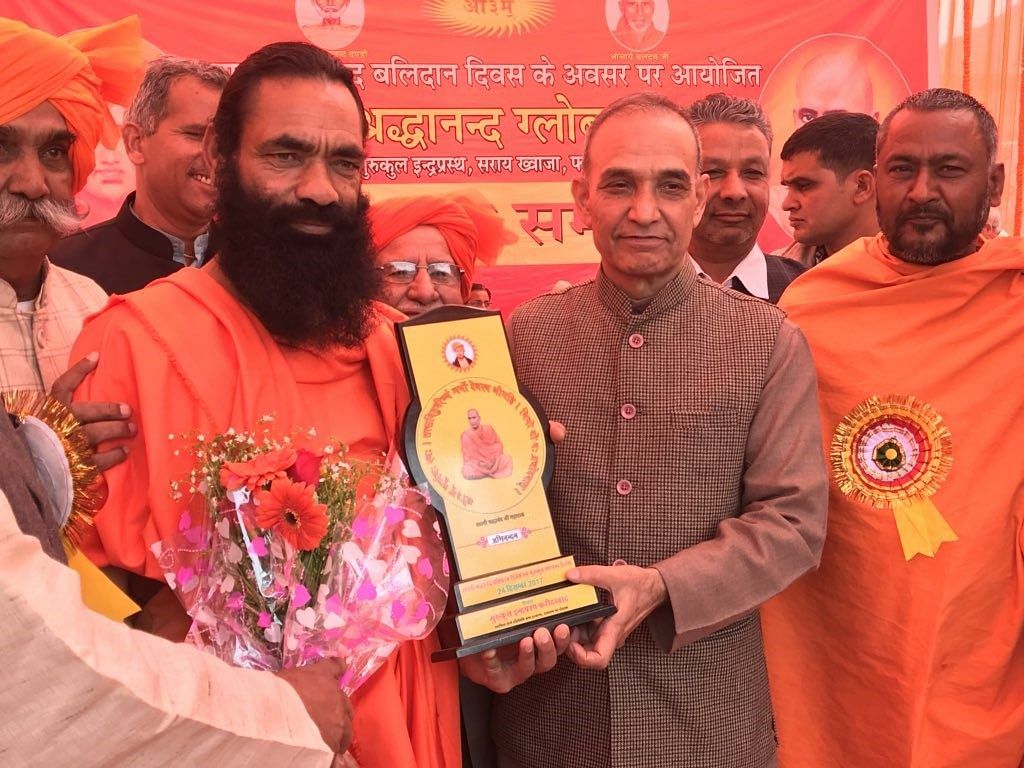The political project of creating a Hindu Rashtra, where religion is a requirement for citizenship itself, necessitates an attack on science, history and art.
The fact that anti-scientific statements can be made unflinchingly in India, without fear of censure, is indicative of the depth to which these ideas are entrenched in our society. One may argue that there has been some change over the last 69 years since our Constitution came into effect. The propagation of obscurantism now requires at least a cursory justification using pseudo-scientific explanations, whereas at one time diktats would have been enough to ensure enforcement. The inadequate, but non-negligible, advances of a modern democracy such as ours have forced these changes.
Unfortunately, superstition and obscurantism are so ingrained in our society that we continue to tolerate the cognitive dissonance that absurd pseudo-scientific ideas create when juxtaposed with advances in modern scientific understanding.
The attempt to keep the theory of evolution out of school curricula, or to present it to schoolchildren as ‘just another theory’ that is equivalent to religious theories of the origin of life, has not been made for the first time. The so-called creationists in the United States have been campaigning to include theories of ‘divine creation’ in school curricula for many years now. At the root of their argument is the belief that above the regular everyday workings of nature, which may be studied and understood using scientific methods if one must, is the universal truth of God’s creation.
The statement by Satyapal Singh, minister of state (HRD) of higher education in the Government of India, is a crude version of this sentiment espoused by the creationists. It is crude because even the marginally more sophisticated anti-evolution arguments do not claim that the theory is invalid because ‘nobody saw the ape turning into man’.
If the minister really was making a statement about science, and he claims that he is a ‘man of science’, a minimal expectation would be that he would expend some effort in understanding what the theory of evolution is and how it has developed over the years. The fact that this is not so, shows that similar to statements about plastic surgery and genetic science in ancient India made earlier by none other than our Prime Minister, this one too is a political statement that serves a particular purpose.
These statements are not made with some exalted aim to encourage scientific dialogue, and while it is necessary to confront and oppose the statements themselves, a bigger battle against the political ideology from which they originate needs to be fought.
Creating a Hindu Rashtra is a political project of the RSS, just as Zionism is a political project of the nationalist Jews in Israel, or the project of propagating an Islamic State is the aim of fundamentalists in Pakistan. For such political projects, it is necessary to enforce an almost militaristic supremacy of religion over science.
Religion, then, is not simply a matter of private belief, but a set of rules, regulations, and directions for behaviour that govern everything in the public and private lives of citizens — what one can or cannot eat, who one is allowed to marry, what one is allowed to read, what is right and wrong as seen within the confines of religion. The enforcement of vegetarianism (at least as far as possible in this country) would require a justification of the importance and holiness of the cow.
History cannot be studied objectively as it can potentially lead to the rejection of many ideas of long-lost glory that are important for the political project of creating the Hindu motherland. So, mythology is made synonymous with history. And science is to be limited to technological development alone, and not seen as a method to understand the world around us.
The political project of creating a Hindu Rashtra, where religion is a requirement for citizenship itself, necessitates not only an attack on science, but on history and art as well. We have seen an increase in the presence of these ideas in the public domain over the last few years, along with an increase in intolerance towards anybody that disagrees with them. If we make the mistake of assuming that statements such as the one made by the minister are only about believing one theory versus the other, and do not question the larger political project that they embody, we will have to keep fighting such occurrences that are only likely to increase.
The development of ‘scientific temper, humanism, and the spirit of inquiry and reform’ is a constitutional duty of every citizen. Cabinet ministers are governed by the same Constitution. As we approach the 69th Republic Day, it is necessary to underline quite strongly that we the people should hold those in charge of governing the country, accountable for upholding and promoting the values enshrined in the Constitution.
Words and acts that directly contravene constitutional values should not be tolerated. It is indeed heartening that the sharp response from scientists to the statement by Singh, has forced the government to respond. But if we are to truly create a more rational and humane society, any project that attempts to assert the supremacy of religion over science must be challenged, and defeated.
Tejal Kanitkar is an assistant professor and chairperson of the Centre for Climate Change and Sustainability Studies at TISS. She studied mechanical engineering.
